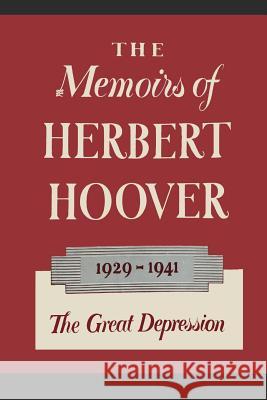The Memoirs of Herbert Hoover: The Great Depression 1929-1941 » książka
The Memoirs of Herbert Hoover: The Great Depression 1929-1941
ISBN-13: 9781684220335 / Angielski / Miękka / 2016 / 536 str.
2016 Reprint of 1952 Edition. Full facsimile of the original edition, not reproduced with Optical Recognition Software. Hoover's "Memoirs" constitute his political statement. This third volume in the series, forthright and devastatingly critical of the New Deal, is the culmination of that statement. Its analysis of the Great Depression--the beginnings during the Hoover Administration and the eight frantic years of the New Deal power from 1932-1940--provides enlightening perspectives for the national problems that followed and persist up to today. In nearly five hundred pages of political dynamite, Hoover argues that the Great Depression was largely the responsibility of the Federal Reserve, which acted against his protest; that the bank panic of 1933 was the most unnecessary panic in history; that Roosevelt's actions as President-elect tended to precipitate that panic and his refusal to cooperate had an adverse effect upon critical foreign problems. A different perspective on the Great Depression from one of the most important political actor of the events.
2016 Reprint of 1952 Edition. Full facsimile of the original edition, not reproduced with Optical Recognition Software. Hoover’s “Memoirs” constitute his political statement. This third volume in the series, forthright and devastatingly critical of the New Deal, is the culmination of that statement. Its analysis of the Great Depression—the beginnings during the Hoover Administration and the eight frantic years of the New Deal power from 1932-1940—provides enlightening perspectives for the national problems that followed and persist up to today. In nearly five hundred pages of political dynamite, Hoover argues that the Great Depression was largely the responsibility of the Federal Reserve, which acted against his protest; that the bank panic of 1933 was the most unnecessary panic in history; that Roosevelt’s actions as President-elect tended to precipitate that panic and his refusal to cooperate had an adverse effect upon critical foreign problems. A different perspective on the Great Depression from one of the most important political actor of the events.











